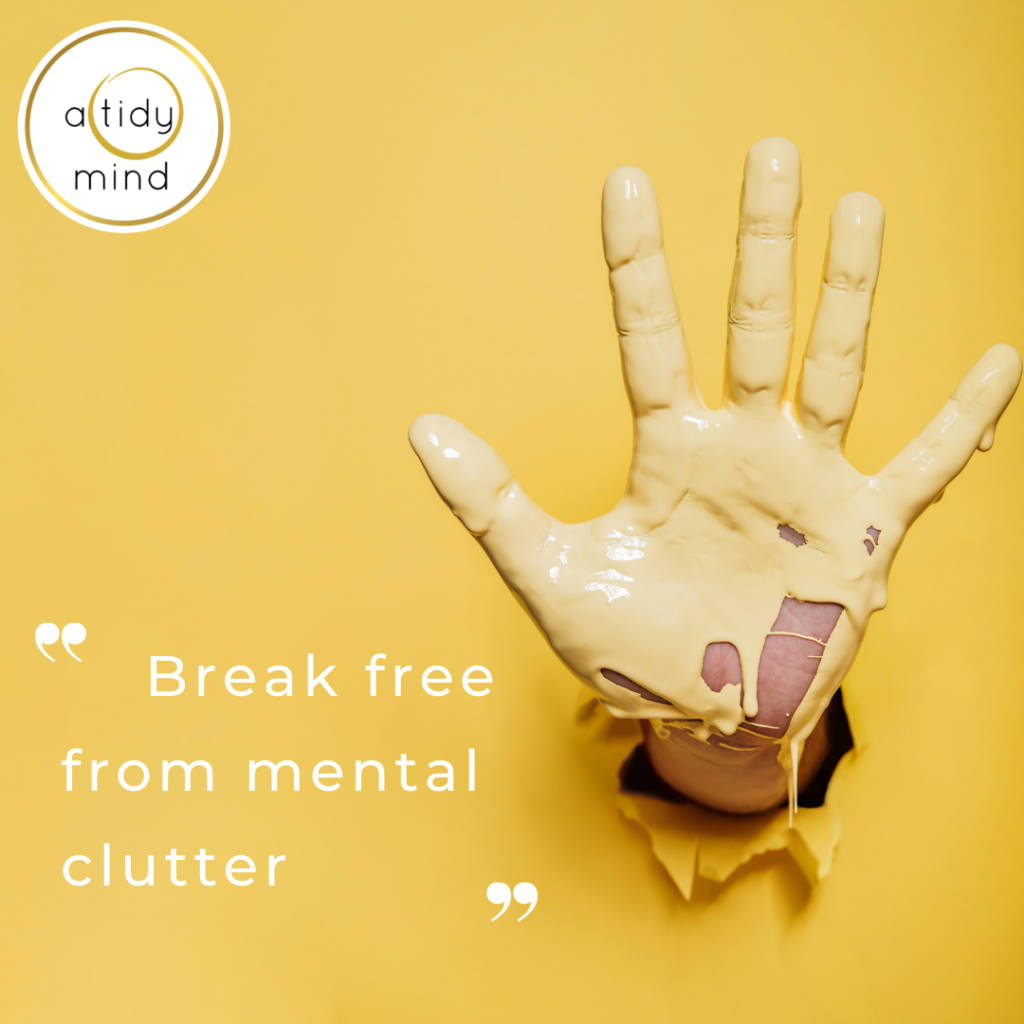Catastrophising During a Crisis – “To bear trials with a calm mind robs misfortune of its strength and burden.” – Seneca

It’s easy to slip into a state of mind in which you dwell on the worst possible outcomes when faced with a crisis such as the COVID-19 pandemic. Such a cognitive distortion is known as catastrophising, and it’s a pattern of thinking from which we should all do our best to break free. Habits, pastimes and thoughts that are cluttering up your mind are just as impactful as physical clutter, if not more so.
Allowing negative thoughts to constantly invade your headspace is unhealthy, potentially destructive, and unlikely to accomplish anything. Like millions of people around the world faced with the reality of the coronavirus outbreak, you may have discovered that it’s not all that easy to stop a downward spiral. It’s not easy, but it’s not impossible.
In this post, we take a closer look at what catastrophising is, why we do it, and 5 ways to break free from it during a crisis.
The Psychology Behind Catastrophising
This cognitive distortion leads people to think the worst of all sorts of situations, and not just crises such as COVID-19 or a natural disaster. For example, someone may wake up with a sore arm because of the position in which they slept.
If they are prone to catastrophical ways of thinking, they may conclude that the pain is being caused by the onset of a heart attack or by some other problem that may require surgery. If the latter, it may prevent them from working. If they cannot work, they cannot buy food or pay the rent.
Feelings of anxiety and depression usually accompany such thoughts, which ultimately leave them feeling even worse. Sometimes the thoughts can actually create a real crisis as well. If they cannot buy food, they’ll starve, and if they cannot pay rent, they will lose their home.
There is no definitive answer to the question of why we catastrophize. Some psychologists think it may be a product of our default setting to constantly be on the lookout for potential threats. Others, such as the Centre for Anxiety’s founder and director, Dr David Rosmarin, think it is a dysfunctional attempt at trying to gain control of a situation or of our response to a situation. Either way, it is not going to help.
How To Break Free

There is no one method guaranteed to prevent you from having extreme negative thoughts. However, there are several different ways in which you can gradually change your mindset, which can lead to a balanced, healthier perspective.
5 ways in which you can break free from thinking the worst during a crisis include staying informed by focusing on the facts, accepting the uncertainty of the outcomes, focusing on what is in your power to control, being a force for good by helping others, and nurturing your body, mind, and spirit.
Stay Informed With The Facts
In times of crisis, whether it be a viral outbreak or a superstorm, it is important to stay informed. However, you need to limit yourself to the facts reported by trusted news sources and organisations and not clutter your mind with fake news and negativity.
It’s also important to limit your exposure to news, updates, and headlines. Instead of checking for updates several times an hour, check a few times a day. Overexposure to the news can add to your worries, and it can leave you feeling fatigued.
Reliable sources of information about COVID-19 include the World Health Organisation, as well as national centres of communicable diseases. You may also find it helpful to check websites such as Snopes, a fact-checking site.
Accept the Uncertainty of the Outcomes
A hallmark of catastrophising is to think of the worst possible conclusions, and to do it with such frequency and fervour that you start to believe those outcomes are what will happen. You can counter that by reminding yourself of the uncertainty of the situation, as well as of the uncertainty of the outcomes.
It is natural to want to be in control of your life, but the reality is that you relinquish some control every time you get on the bus, use the subway, or board an aircraft. In times like the COVID-19 pandemic, it can be helpful to remember words from the Serenity Prayer – Grant me the serenity to accept the things I can’t change, courage to change what I can, and the wisdom to know the difference.
Focus On What You Can Control
You cannot control the coronavirus, the spread of COVID-19, or the length of the lockdown, but you can control the way you respond to it. Instead of allowing worry to eat away at you, focus on what you can control.
Follow advisories regarding handwashing and social distancing and the advice of healthcare professionals regarding nutrition and getting enough sleep. Focus on work, tasks at home such as spring cleaning, sorting out old books, clothes or jewellery that you could sell, cooking, or entertainment. It can also help to maintain regular contact with family and friends, but in doing so, make sure you do not let the current crisis dominate the conversation.
Be a Force For Good
Rather than focusing on worst-case scenarios, become a force for good as a way of breaking free from that negative way of thinking. You may even find that helping those in need gives you not only a sense of purpose, but also a sense of being in control of something.
There are different ways in which you can do this while still following social distancing guidelines. Join a neighbourhood group on Facebook or Whatsapp, and then use it to find neighbours who may need a hand when it comes to buying groceries. Another option is to make contact with lonely or elderly neighbours, and to find out how they are.
Nurture Your Body and Soul
Nurturing your body, mind, and spirit is another way in which you can maintain a mental balance during uncertain times. Try to stick to a daily routine that allows time for rest, work, cooking and eating nutritious food, exercise, spending time outdoors, and doing something you enjoy.
In addition to eating well and getting enough sleep, you can think of taking up a spiritual or meditative practise, if you do not have one already.
Above all, remember that self-care is always important, and that a holistic approach to life is the healthiest choice.

